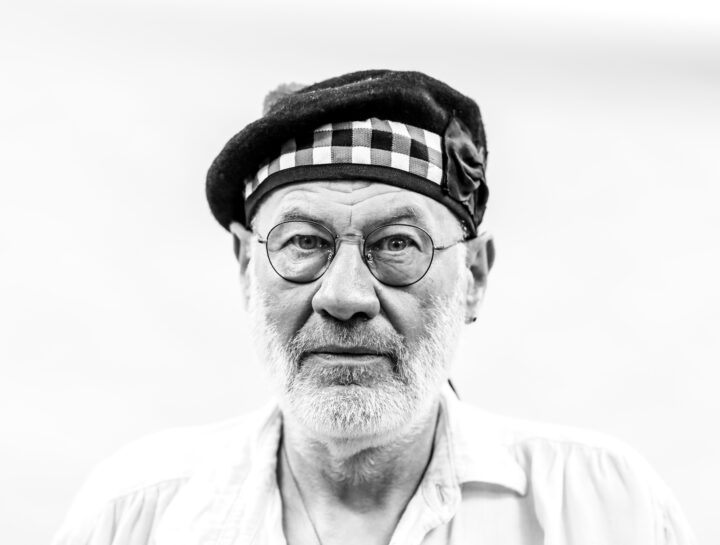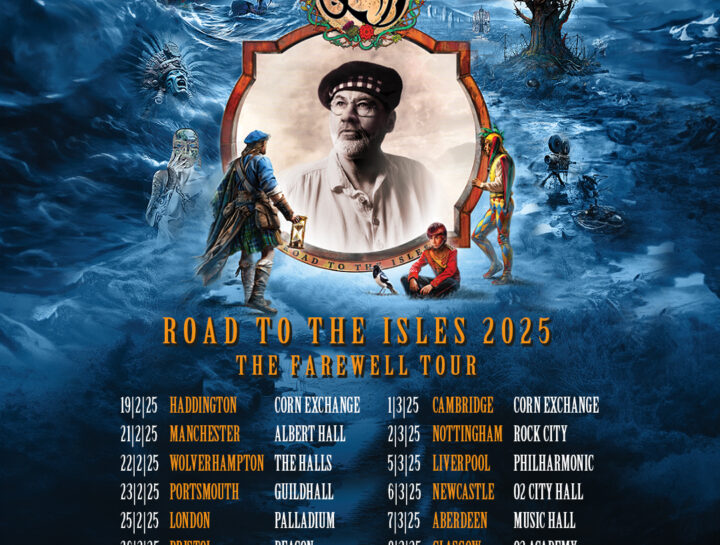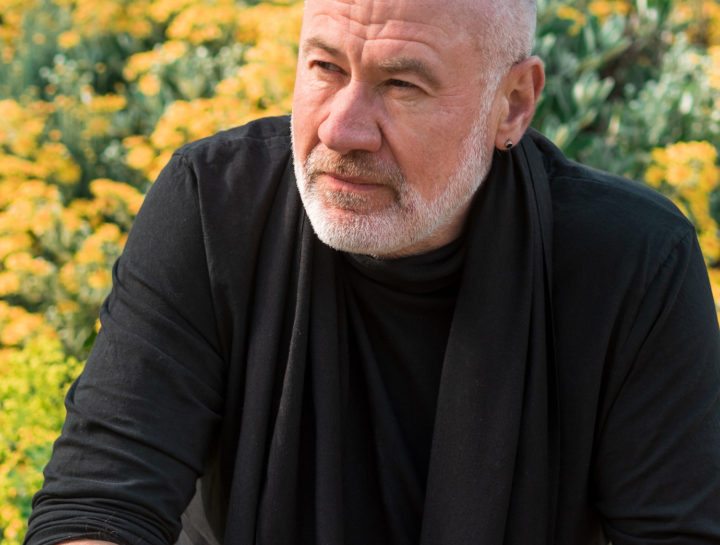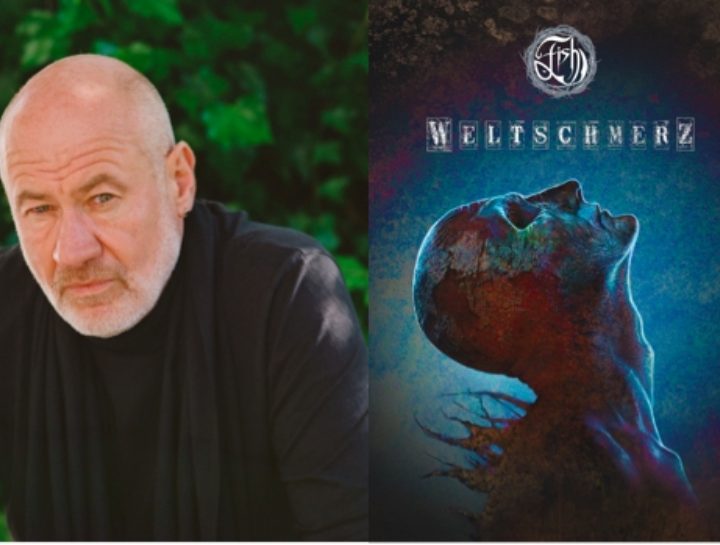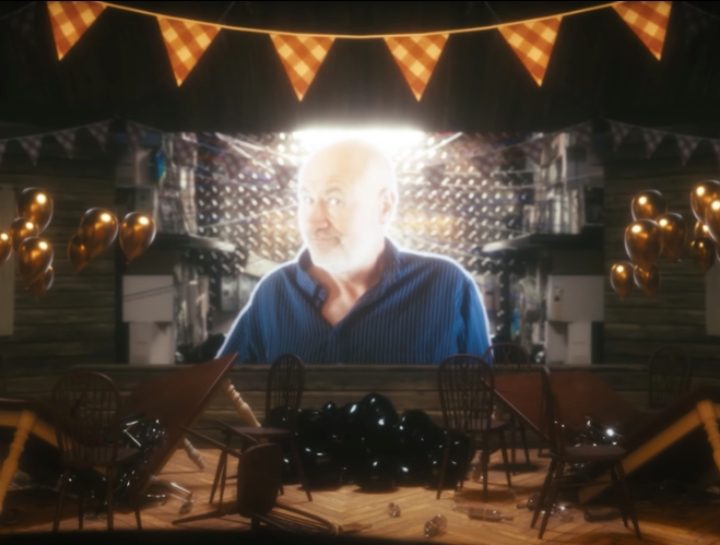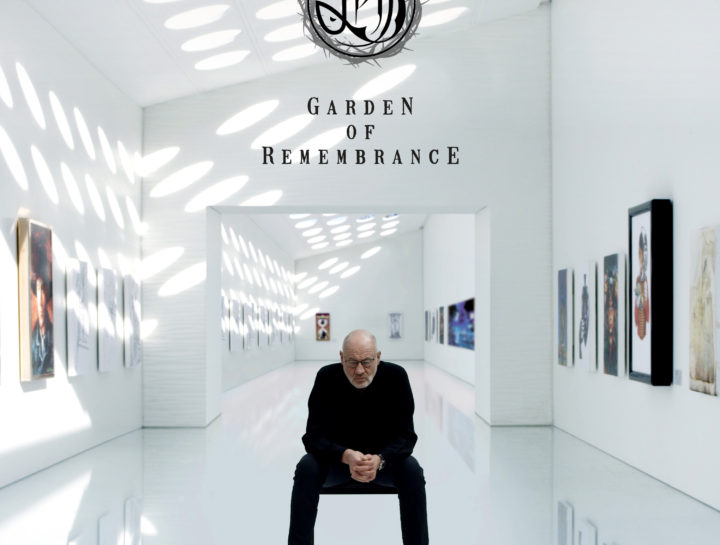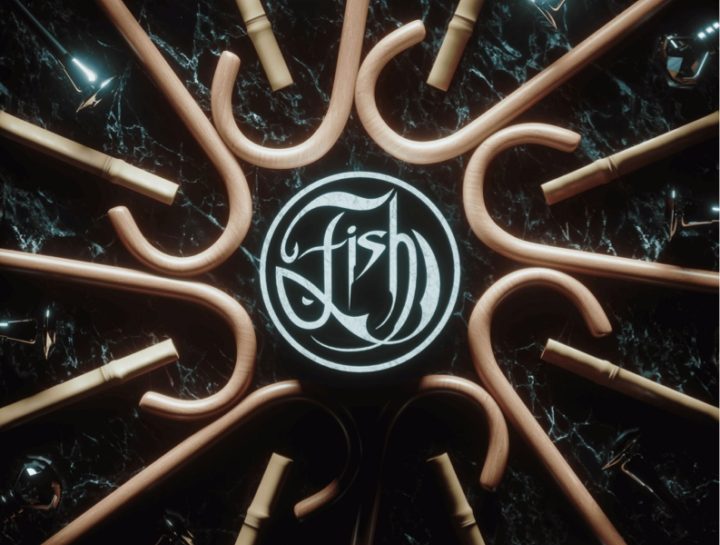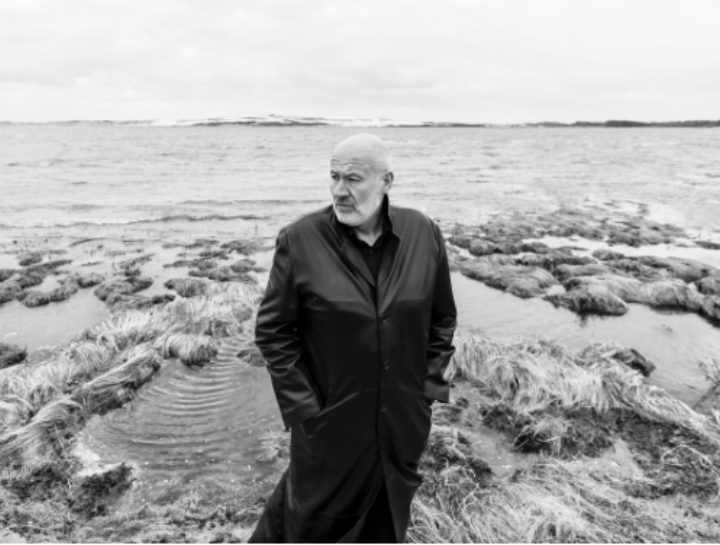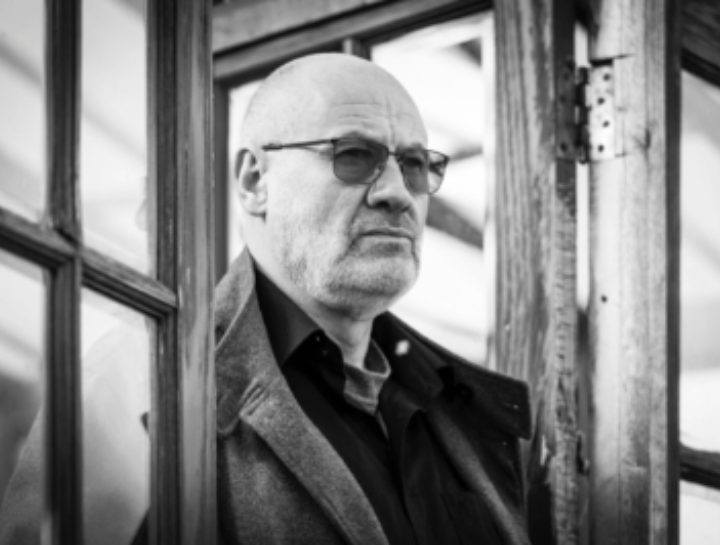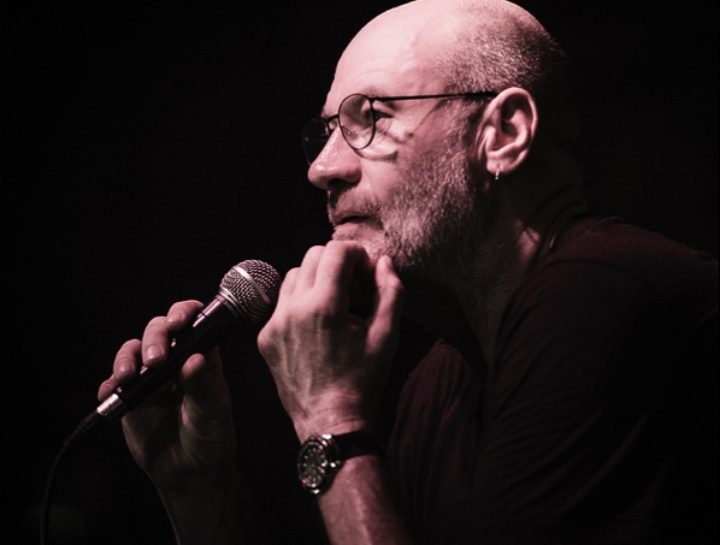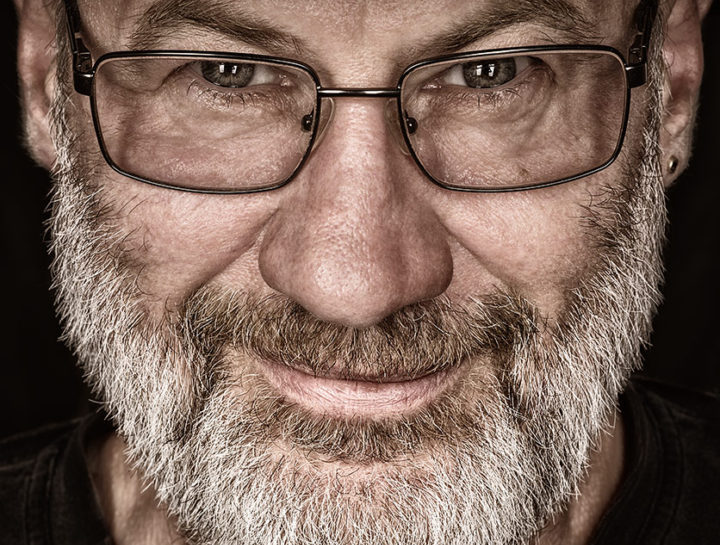Fish
“I am a grey bearded warrior, a poet of no mean acclaim, My words are my weapons that I proffer with disdain, My melancholy aspect is something you can’t disregard, My motives you cannot question nor my strong sense of right and wrong.” (From the song ‘Weltschmerz’)
“These songs are autobiographical. I’m involved in all of them and I didn’t realise that until I sang them in the studio. There’s a lot of self-examination going on here, and I learned a great deal about myself in the making of this album.”
Fish is talking about his eleventh and final solo record, 'Weltschmerz', an extraordinary piece that brings down the curtain on this phase of the Scotsman’s long and successful career.
The singer spent five years of his life in the assembling of 'Weltschmerz' – the title means “a feeling of melancholy and world weariness” in German. During the half-decade occupied with its gestation, Fish was put through the mill.
His father died, his 87-year-old mother moved into permanent care with Fish and his wife due to deteriorating health issues, sepsis came close to killing him, he required operations on his hands and spinal surgery, Trump was handed the keys to the White House, the German refugee crisis increased tenfold, civil war broke out in Syria, at home the Brexit saga turned brother against brother and he endured a period of writers’ block. Then, depositing a metaphorical cherry on the cake, Coronavirus tilted the globe.
But two things caused him to make a record as sombre as 'Weltschmerz'. In 2015, 89 music fans were murdered by terrorists at a concert at the Bataclan in Paris. The incident affected Fish deeply. Meanwhile, his own advancing years were causing him to realise that, as he puts it, “I had my own sell-by date.”
Back in 1988 Fish walked away from his former band Marillion in the wake of what he considered their best album, Clutching At Straws. 32 years ago he hid behind its brooding lyrics by inventing a character called Torch. Though he would only grasp the fact later, Weltschmerz is subterfuge-free.
After reading the book of the same name by 1930’s German novelist Hans Fallada, Fish wrote ‘Little Man What Now’ following the passing of his father. And taking its cue from This Party’s Over – the book by the US author Richard Lindberg that had inspired his previous album, 2013’s A Feast Of Consequences – the song ‘This Party’s Over’ bubbled out “when I started to become concerned about my drinking.” (Something he quickly got under control).
“When I wrote ‘The Waverley Steps’ it was about a whole different character,” chuckles Fish. “And then I realised: ‘Fuck’, it’s about me.”
The title track, ‘Weltschmerz’, wraps the record. Fish’s final musical statement is a taut yet perversely melodic piece charged with political ire (“I came to in a country I once considered a home/That has been lost to the scoundrels and the rogues and a circus of clowns”).
However, ‘Garden Of Remembrance’ stand as the album’s most undoubtedly poignant and personal moment. With his mother at the forefront of Fish’s mind, the subject of Alzheimer’s became a pressing one. The song tells the story of a married couple, and resulting issues between the husband, who’s “Lost between the here and now/Somewhere that he can’t be found” and his wife. “That song was put together as though we were painting a delicate piece of Royal Doulton china,” comments Fish.
Of course, since the nation’s enforced quarantine ‘…Remembrance’ also takes on a whole additional new connotation – that of social distancing. Directed by David Lam and Hannah Thompson (daughter of the Marillion illustrator Mark Wilkinson), its sparse, powerful video was filmed at daybreak during lockdown on a Scottish beach, a glass wall separating the couple, who at one point are very briefly reunited. Filmed alone in an art gallery lined by artwork from his career, Fish sings the lyrics down the camera lens, and at one crucial moment is moved to cry a real, genuine tear. “Although she didn’t want to be on camera, my mother was in a room 15 metres from where I was singing the song,” he relates sadly.
'Weltschmerz' emits a certain air of finality and closure, but it is not a depressing record. Fish prefers to think of it in terms of the 1999 cinematic masterpiece American Beauty. “I loved that movie,” he comments. “It dealt with a lot of issues like midlife crises and homophobia and yet it remained a beautiful film – a piece of art.”
Besides bringing us Fish’s finest set of lyrics to date, 'Weltschmerz' is also his most adventurous and varied piece of work. Certainly, there was no fear of disapproval from the notoriously fussy gatekeepers of progressive music.
“Quite early on, Steve [Vantsis, bass guitarist, co-writer and chief collaborator] and I decided that if I was walking away then it was time to damn the torpedoes,” Fish explains. “If something was good, we used it. If a song needed to be long or short, so be it. If it needed strings or bass, let’s go for it. That’s why ‘The Waverley Steps’ has that Blood Sweat & Tears-style horn vibe.”
‘Rose Of Damascus’ is a 17-minute cascade of voice, instruments, alternating tempos and narrated parts which Fish describes as sounding “like David Lean [the movie director] doing prog”. It’s among several tracks to feature prominent use of musicians from the Scottish Chamber Orchestra.
“We used eight players from the SCO, they’re there in the background right across the album,” notes Fish, who heaps praise upon the album’s producer, Calum Malcolm. A regular part of Fish’s inner circle, the other Scotsman put himself through five painful mixes before finding the perfect balance between the individual elements, which include the mesmerising background vocals of Doris Brendel.
“Doris clips brilliantly into what I do,” Fish points out. “She’s comes from a proggy background but she’s got soul. On ‘Rose Of Damascus’ she uses her voice like a percussive instrument, the way Kate Bush would.”
Other players besides Steve Vantsis include guitarist Robin Boult, keyboardist Foss Paterson, Dave Stewart on drums, former Van der Graaf Generator saxophonist David Jackson, Steven Wilson and Steve Hackett’s drummer Craig Blundell, guitarist John Mitchell (Lonely Robot, Frost*, Arena) and the multi-instrumentalist Mikey Owers.
Ultimately, it’s the sheer attention to detail that makes 'Weltschmerz' so special. “Calum [Malcolm] knew this was going to be our last album together and he put everything into it,” Fish nods. “This is my most complicated album and for some of the time we were working in lockdown, what he did was truly incredible.”
There’s no doubt that Fish has achieved is what he set out to do. Having quit Marillion with his strongest record, he repeats the feat in a solo capacity with Weltschmerz. “The last thing I wanted was to sign off with a Love Beach moment,” he laughs, referencing Emerson Lake & Palmer’s universally panned contractual obligation set from 1978. “I needed to book end my career with the best solo album of the all.”
Given the sheer volume of work accumulated over a forty-year period, this represents quite an achievement. Fish was a member of Marillion for just seven years and has been out on his own for 32 years. By now he is resigned to the association. “I will be making notes in my will – it had better not appear on my tombstone,” he guffaws.
While he was also worked as an actor and a writer, leaving his behind the achievements for which is best known will be bittersweet. Fish recalls listening to the completed 88 minutes of music contained on 'Weltschmerz' for the first time. The closing strains of its title track and swansong left him spent and proud.
“This is my defining statement. I knew that I couldn’t do anything more in music,” he insists. “It’s time to walk away. I don’t even really care how it sells or what reviewers might say. It’s a punctuation mark.”
With touring plans for 'Weltschmerz' eviscerated by Covid-19, Fish isn’t even sure about what remains of his musical future. What seems likely is that in late 2021 he will present a show based jointly upon Weltschmerz and his solo debut 'Vigil In A Wilderness Of Mirrors', followed by a year off and the very final bout of roadwork. This could involve playing two-night stints in his favourite venues, with differing set-lists in each city. Beyond that, Fish cannot say for sure what the long-term future holds.
“I want to escape from the confines of music,” he shrugs. “I know that I want to write – screenplays or whatever. I haven’t got a pension and I’m not a millionaire so I won’t be going away, but I’ll make my living in another area. The pandemic has taught me that I need to take the rhythm of my life right down. That’s why 'Weltschmerz' is the perfect ending to it all.”
